Many climate readiness investments in Canada primarily focus on industry and large businesses, leaving non-profits without the support they need to futureproof themselves. However, the non-profit sector is crucial, contributing $192 billion to Canada’s economy annually (8.3% of GDP). Non-profits often step in to address gaps left by government and industry. This includes providing essential services such as community-based climate adaptation programs and raising awareness of environmental issues. Becoming climate resilient involves preparing to maintain critical services such as food, housing, transportation, and education, especially during extreme weather events, ensuring that non-profits can continue to offer vital support to vulnerable populations.
Addressing complex global challenges such as extreme weather events, biodiversity loss, inequality, and evolving expectations from partners and funders can feel overwhelming. Figuring out where to begin can be a challenge in itself. To help with this, the Academy for Sustainable Innovation created the “Climate Action for Non-Profit Leaders” program for non-profits to learn about the impacts of climate change and how to start taking action on climate issues.
Our inaugural offering was held in collaboration with the Ontario Nonprofit Network (ONN), an independent network for Ontario’s 58,000 non-profits. ONN is dedicated to enhancing the province’s non-profit sector through policy advocacy and various services. This partnership highlights the role of collaboration in addressing the challenges posed by climate change.
“I enjoyed the opportunity to connect with other non-profits and hear what they are doing in regards to climate change, sustainability, and adaptation.”
Program Participant

8.7/10 Course Rating
25 non-profit leaders from diverse backgrounds in British Columbia, Alberta, and Ontario participated in this course.
Overall, participants found the modules helpful and valued the opportunity to connect with other non-profit leaders.
Topics Explored
Climate Action for Non-Profit Leaders explored the interconnected nature of climate-related challenges and provided practical frameworks for non-profit organizations to take the next steps in their climate action efforts. Topics included:
-
- Intro to Climate Action: Understanding climate change impacts, ecological awareness, and navigating climate conversations.
-
- Transition Leadership: Developing competencies in Transition Leadership and understanding organizational change from a systems-thinking perspective.
-
- A Just Transition: Examining case studies of just transition policies and practices.
-
- Taking Action as a Transition Leader: Assessing impact opportunities and identifying practical steps organizations can take to advance their climate action efforts.
We welcomed a total of 25 exceptional participants from all across the country, who each brought a wealth of experience, concerns, observations, and great questions. It was inspiring to witness many non-profit leaders eager to explore how they could contribute to a sustainable future within their organizations, teams, and communities. Based on our discussions, here are a few takeaways that were important for non-profit organizations to consider when striving to lead meaningful change towards a low-carbon, socially-inclusive future.
Navigating Tension in Transition
Transitioning towards more sustainable practices often involves navigating tensions and conflicts within organizations. Non-profit leaders encounter challenges such as balancing short-term objectives with long-term sustainability goals, managing resistance to change, and addressing resource constraints.
By gaining a better understanding of Transition Leadership competencies, which include sustainability and climate literacy, non-profit organizations can leverage this knowledge to succeed in change efforts and amplify their impact. Integrating these competencies into their leadership approach enables non-profit organizations to navigate tensions and conflicts more effectively, ultimately leading to meaningful and lasting transitions towards sustainability.
The Climate Crisis and Leadership Capacity
The connection between the climate crisis and leadership capacity is profound and multifaceted. At its core, the climate crisis represents a failure of leadership on a global scale. To address the climate crisis effectively, we must first acknowledge the limitations of existing leadership paradigms. Traditional hierarchical structures often prioritize maintaining the status quo over innovation, collaboration, and adaptation. This inertia can be particularly detrimental in the face of complex, rapidly evolving challenges like climate change.
By acknowledging and tackling challenges related to leadership capacity, non-profit organizations can cultivate a culture that encourages innovative and adaptable leadership approaches that are necessary to confront the climate crisis.
Recognizing Nature as a Stakeholder
By recognizing nature as a stakeholder, non-profit organizations can embrace the understanding that the health and vitality of natural ecosystems are intertwined with human well-being and prosperity. This acknowledgment prompts a shift from viewing nature solely as a resource to recognizing it as a key stakeholder when conducting decision-making processes.
Improving Organizational Insight: A Whole Systems Approach
Because the climate crisis is complex and interconnected, it’s important to step back, conduct a high-level scan of your organization, identify the most impactful opportunities for change, and then plan a course of action. Conducting an initial scan, ideally with a few colleagues from different groups, will help to identify the most significant opportunities. A comprehensive assessment should cover:
-
- Organizational Inputs: Everything necessary to conduct work effectively.
-
- Internal Aspects: Purpose, culture, practices, and systems within the organization.
-
- Partnership and Engagement Practices: How the organization collaborates with others.
-
- Intended and Unintended Outputs and Outcomes: Both planned and unforeseen results of organizational activities.
Every organization has its unique context, sustainability footprint, and climate impacts, necessitating a tailored approach and timeline for implementing changes. Taking proactive steps towards climate action can be approached as an opportunity to bolster resilience, mitigate risk, and promote equity, benefiting the organization and its stakeholders alike.
Building Transition Leadership Capacity
Transforming leadership and organizational cultures is not without its challenges. A lot of individuals have the desire and motivation to work in a way that leads to a more sustainable future, but they may lack the knowledge, time, or resources to move forward. Many leaders feel overwhelmed by the magnitude of the climate crisis. Building leadership capacity becomes incredibly important to cultivate the skills, mindset, and vision necessary to mobilize collective action and implement sustainable solutions.


